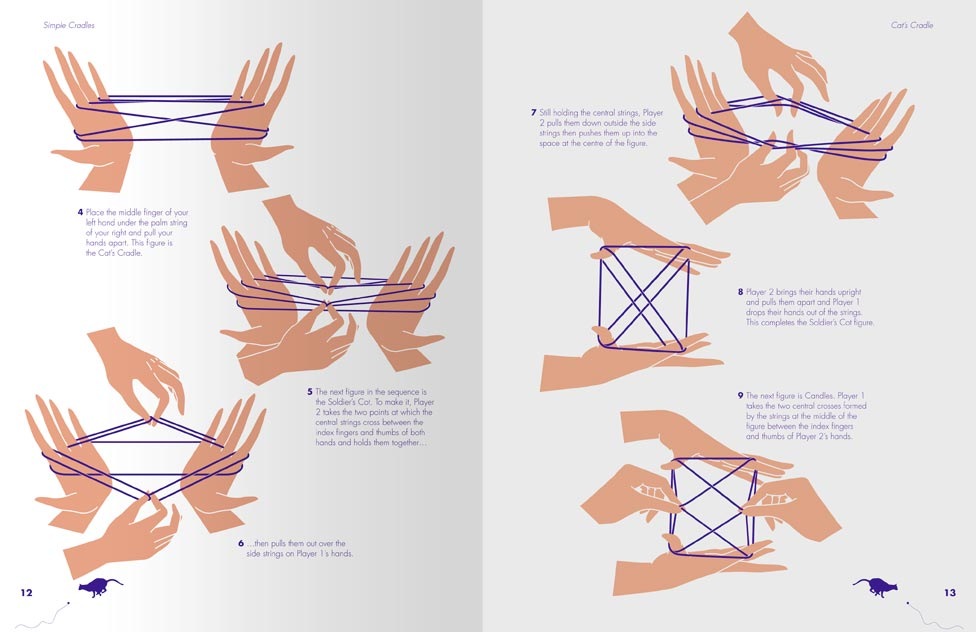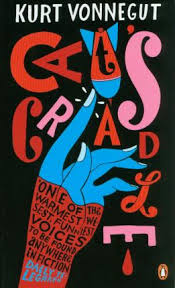

I am just going to come out and say it: I am pretty sure that Kurt Vonnegut is my spirit animal. When I read his works, I feel like he is talking to a darkness that has lived inside of me that has been protected by comedic outbursts and nurtured by the sorrows of the world. Vonnegut’s books are strange, fantastical, and confronting. They make me question my values, my beliefs, and what way is really up. Cat’s Cradle is no exception. The opening lines read:
Nothing in this book is true.
‘Live by the foma* that make you brave and kind and healthy and happy.’
The Book of Bokonon. 1:5
*Harmless untruths
Bokononism is a religion found on an island republic in the Caribbean, San Lorenzo. Their catchphrase is: “Busy, busy, busy,” which is used whenever there are lots of things afoot. The Bokononist life is simple and blunt.They believe:
Everything is a lie.
Nothing can be true.
Love the people around you.
Give into your karass* and the kan-kan* that takes you there.
(*”We Bokononists believe that humanity is organized into teams, teams that do God’s Will without every discovering what they are doing. Such a team is called a Karass by Bokonon, and the instrument, the kan-kan…”)
There is a lot of beauty in this. It might seem rather bleak to think that everything is a lie. However, the concept is not uncommon in philosophy. It stems from the notion that there are no origins because everything is essentially made up of everything else. Theorists like Jaques Derrida, and Michel Foucault explore this concept. So if there are no true origins, where do we centre ourselves? This comes from the idea that our perception of reality, what we think to be true, is only a subjective interpretation. Reality can only exist in multiplicity: multiple subjective perspectives that we interpret and represent through speech, art, actions, and everyday life. Interpretation and representation as ways to understand the world, stem from extremely old concepts that come from Plato’s Republic and Aristotle’s Poetics from Ancient Greece.
Love the people around you (I guess you don’t always had to rub feet). This is simple. And while it is rooted in all religions it often interpreted, I believe, wrongly. There is usually a catch. Love the people around, as long as they… Love the people around you, provided they… Too many times I see this love turned into a moral high ground. I love you because you do not know what you do, really means, what I think you do is wrong, but I am going to sit here smugly and judge you through the lens of my own subjective perceptions of religion and life. Whether there is such a thing as pure love, and unbiased love, I don’t know. But it isn’t a bad thing to strive for?
Your karass and your kan-kan. While this might seem fatalistic-you have no control over your destiny so just give into it- I like to think of it as give into your own desires and follow where they take you (as long as your desires don’t involve mass murder). Too many times we have a voice inside ourselves that whispers, “What if…” and this voice is policed by our internalised cultural and social expectations: “Don’t do that… People will think your a fool/wrong/stupid/strange.” Life is short, and as the Bokononists say: those who rise from the mud will return to it.
I’m not sure Bokononism is for me, but it has taught me some great life lessons with sharp irony and blackest of humours around. Thank you Kurt.

Lovely. If we can love the people around us, the world will be a better place.
If only.
Great post, love it, specially reading it here in Nepal, where I am learning a lot about “perception of reality” from the Buddhist point of view 🙂
Regarding “Whether there is such a thing as pure love, and unbiased love, I don’t know”, for me a good wise expression of the Dalai Lama comes to mind: “the world would be a better place, if only human beings can love each other like a mother loves her child”! see you soon x
Pingback: Life Lessons from Michelle Obama’s “Becoming” | bound2books
Pingback: A Review of "The Seven Moons Of Maali Almeida": Magic Realism & Art - bound2books